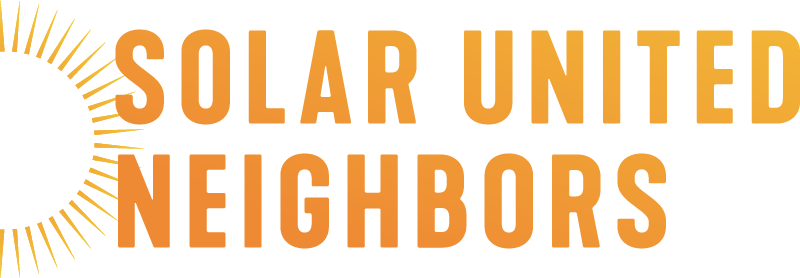
Broward County has set goals to expand the use of renewable energy. Here in South Florida, renewable energy from the sun is one of our best options.
Broward County supports the Solar Co-op as one of its strategies for reaching its 2020 Climate Change Action Plan goal of expanding renewable energy. With the help of the non-profit Solar United Neighbors (SUN), the co-op supports residents, non-profits, and small businesses going solar with customer assistance and group savings.
The 2023 Broward solar co-op closed on January 31, 2024. Results of the co-op will be published soon.
How does the solar co-op work?
After a competitive bidding process facilitated by SUN, co-op members will select a single solar company to complete the installations. Joining the co-op does not obligate members to purchase solar. Instead, members can individually purchase panels and electric vehicle chargers based on the installer's group rate.
The past 5 Broward Solar Co-ops resulted in 1.5 MW installed capacity, $3.5 million of economic investment, 25 jobs created, and 21,357 metric tons of lifetime carbon offset.
Tips for Going Solar in Broward
List of things to consider as you pursue your solar options:
Examine your electricity bill. Determine how much energy you use annually. You should know the annual cost of your electric bills, and the cost per kilowatt hour. Visit FPL to view a detailed description of your bill and current rates.
Be efficient. How energy efficient is your home or building? Installing solar on a drafty or poorly-insulated house would be a bad investment. Start by getting an energy audit to learn how energy efficient your home is and your options for improvement. Schedule a free Home Energy Survey from FPL or find a Residential Energy Services Network Member.
Understand your site. Know the orientation, age and condition of your roof, and the nearby landscape. Is your roof shaded by buildings or trees? Does your roof need replacement in the near future? Search for your home on Project Sunroof.
Contact contractors. Speak to solar contractors so they can help you navigate the feasibility of solar on your site and assess whether, and how quickly, the energy savings from solar panels will “repay” the initial cost of the panels. Compare several solar contractor offers and research contractor reviews. Also, make sure to check for a solar co-op near you.
Start small. Don’t forget to consider solar thermal water heating systems. Dollar for dollar, these are often the most cost-effective solar energy projects. Solar hot water systems come in all shapes, sizes and configurations.
Shop around. Check with your financial institution, the solar contractor, and for other traditional financing choices. The Property Assessed Clean Energy (PACE) Program is an innovative financing option now available for property owners in participating cities. The non-profit Solar and Energy Loan Fund (SELF) is an independent, non-profit, community-based lending organization focused on financing home renovations that promote energy efficiency, clean energy alternatives, storm protection, water conservation, and disability products.
Check for incentives. State and federal rebates, incentives, or tax credits for solar equipment or energy efficiency improvements may also be available. (The federal renewable energy tax credits for businesses and residences are among the most significant incentives at present.) Search the Database of State Incentives for Renewables & Efficiency (Florida and national programs are pre-selected).
